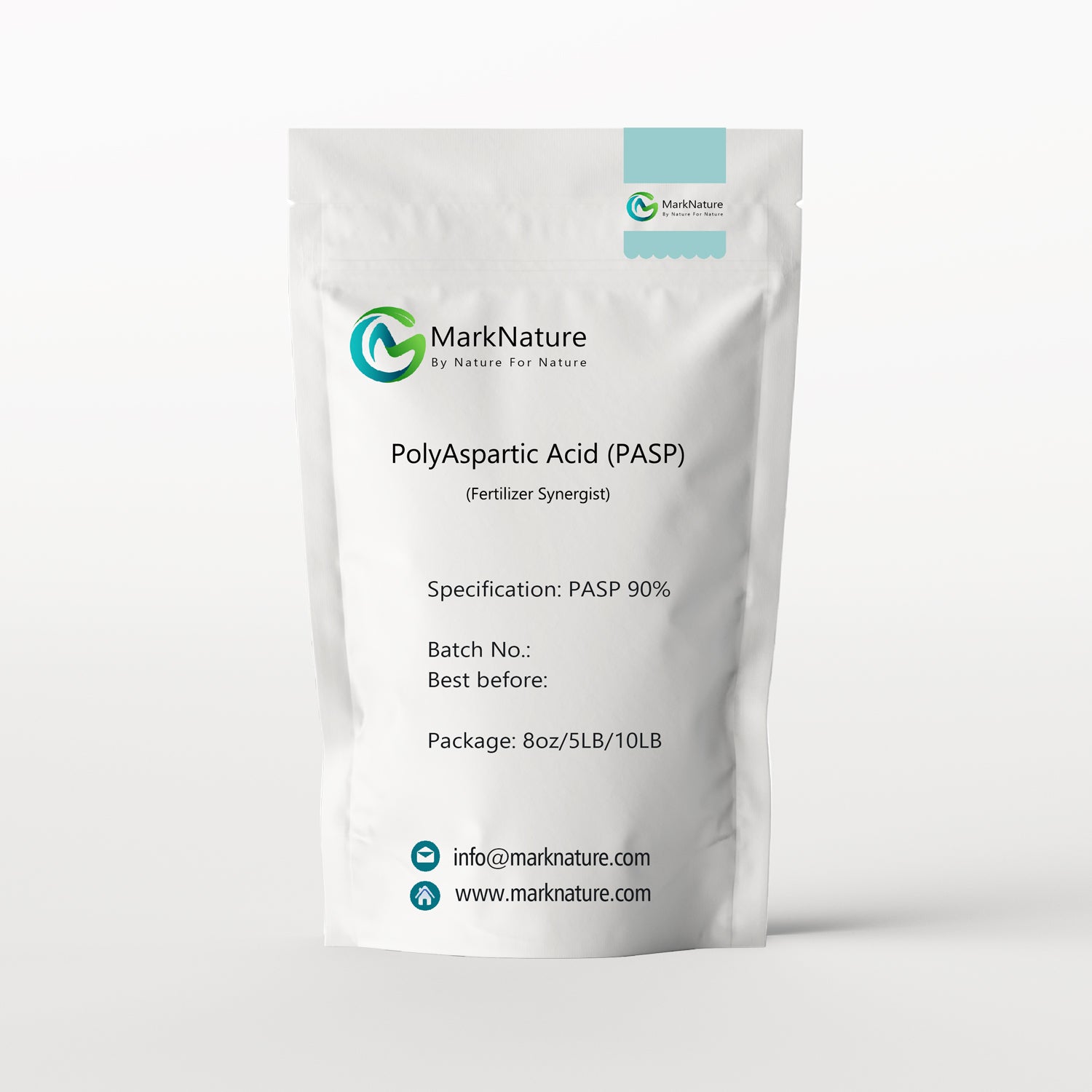Description
MarkNature's PolyAspartic Acid (PASP) stands as an exceptional water-soluble fertilizer synergist, crafted through the meticulous polymerization of Aspartic Acid. This specialized production process ensures the presence of pure amino acids, boasting high nitrogen content and organic matter, making it an unparalleled solution for plant nutrition enhancement.
Key Features:
PASP, an organic nitrogen fertilizer synergist, offers multifaceted benefits. It serves as a high-performance compound fertilizer, effectively combined with NPK fertilizers or utilized singularly for drip irrigation, seed soaking, root treatment, or foliar spray applications. Its unique formulation assures:
Specification:
Appearance: Light yellow powder
PolyAspartic Acid (PASP): 90% min.
Organic nitrogen: 10% min.
Organic matter: 90% min.
PH: 7.5~10.5
Source of raw material L-Aspartic Acid
Sterilized at 70 Celsius degree
Application
- Enhanced Plant Nutrient Uptake: PASP improves nutrient absorption through the roots, optimizing the overall plant health and vigor.
- Amplified Crop Yields: By fostering improved nutrient utilization, it facilitates earlier crop maturity and increased yields.
- Eco-Friendly Efficiency: PASP reduces fertilizer usage, conserving energy while enhancing agricultural output, ensuring both sustainability and productivity.
- Disease and Drought Resistance: It fortifies plants, enabling resilience against diseases and adverse environmental conditions like drought.
- Soil Health Enhancement: Its application nurtures soil quality, creating a conducive environment for crop growth.
Recommended usage:
1. Mixed with urea or NPK fertilizer: added ratio 0.13~0.22%
2. Use alone: 2~3kg/Ha.
MarkNature's PolyAspartic Acid emerges as a transformative agent in agricultural practices, providing a holistic approach to crop nourishment, fostering healthier plants, optimized yields, and sustainable farming practices.


